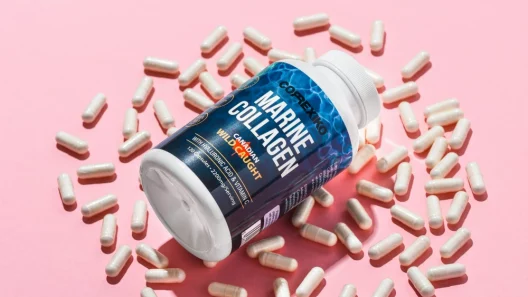The supplement industry has experienced unprecedented growth in 2025, with global sales exceeding $300 billion as consumers increasingly take their health into their own hands . This expansion brings both opportunities and challenges: while we have more options than ever for supporting our health naturally, the market is also flooded with products of varying quality, efficacy, and safety . At MyGreenRemedy, we believe that informed consumers make the best health decisions. This comprehensive guide empowers you with the knowledge to navigate the complex supplement landscape, identify high-quality products, and avoid potentially harmful or ineffective options. Whether you’re new to supplements or looking to refine your approach, this evidence-based resource will help you make choices that truly support your wellness journey.
The Importance of Supplement Quality
The Risks of Poor-Quality Supplements
Not all supplements are created equal, and choosing poor-quality products can pose several risks:
- Contamination: Some supplements have been found to contain heavy metals, pesticides, or harmful microorganisms . A 2024 analysis found that 15% of herbal supplements tested contained detectable levels of heavy metals above safety thresholds .
- Inaccurate labeling: Studies have repeatedly found discrepancies between labeled and actual ingredient amounts in supplements. Some products contain significantly less or more of the active ingredients than claimed .
- Undisclosed ingredients: Some supplements, particularly those marketed for weight loss or sexual enhancement, have been found to contain prescription drugs or banned substances not listed on the label .
- Ineffective forms: Even when containing the stated ingredients, some supplements use forms with poor bioavailability, meaning your body can’t effectively absorb or utilize them .
Understanding Supplement Regulation
Many consumers are surprised to learn that supplements are regulated differently than pharmaceuticals in the United States. Under the Dietary Supplement Health and Education Act (DSHEA) of 1994, supplements are regulated as a category of food, not drugs . This means:
- No pre-market approval: Unlike pharmaceuticals, supplements do not require FDA approval before being marketed .
- Manufacturer responsibility: Companies are responsible for ensuring their products are safe and properly labeled, but they don’t have to prove effectiveness to the FDA .
- Post-market surveillance: The FDA primarily monitors supplement safety after products reach the market, relying on adverse event reports and product testing .
- Good Manufacturing Practices (GMPs): Supplement manufacturers must follow GMPs to ensure quality, but enforcement varies .
This regulatory framework places significant responsibility on consumers to identify quality products, making education essential.
Key Factors to Look For in Safe, Effective Supplements
Third-Party Testing & Certifications
Third-party testing is one of the most reliable indicators of supplement quality. Independent organizations test products to verify they contain what’s claimed on the label without harmful contaminants. Look for certifications from:
- NSF International: Tests for product formulation, ingredient amounts, and contaminants . NSF certification ensures the product contains what’s listed on the label without undeclared ingredients or harmful levels of contaminants.
- USP (United States Pharmacopeia): Verifies identity, potency, purity, and performance of supplements . USP certification indicates the product will break down properly for absorption.
- ConsumerLab.com: Independently tests supplements and publishes results for subscribers . While not a certification seal, ConsumerLab approval indicates a product has passed their testing protocols.
- Informed-Choice/Informed-Sport: Particularly important for athletes, these certifications test for substances banned in sports .
Products with these certifications typically cost more but offer greater assurance of quality and safety.
Transparency in Ingredients & Labels
Transparent labeling allows you to know exactly what you’re putting in your body. Look for:
- Full ingredient disclosure: All ingredients should be listed with specific amounts .
- Avoidance of “proprietary blends”: These blends list only the total amount of multiple ingredients without individual amounts, making it impossible to know if you’re getting effective doses .
- Clear allergen information: Products should clearly state if they contain common allergens like gluten, soy, dairy, or shellfish .
- Identification of non-medicinal ingredients: Fillers, binders, and flow agents should be listed, though some are necessary for manufacturing .
Reputable companies are transparent about their formulations and avoid hiding behind proprietary blends.
Evidence-Based Ingredients
Look for supplements containing ingredients with scientific support for their intended use. Consider:
- Human clinical trials: The strongest evidence comes from human studies, particularly randomized controlled trials .
- Appropriate dosing: Ingredients should be included in amounts shown to be effective in research .
- Standardized extracts: For herbal supplements, standardized extracts ensure consistent levels of active compounds .
- Mechanism of action: There should be a scientifically plausible explanation for how the supplement works .
Be wary of products containing novel ingredients with limited research or those making dramatic claims unsupported by evidence.
Proper Dosage & Bioavailability
Dosage and form significantly impact a supplement’s effectiveness:
- Adequate potency: Ingredients should be included in amounts shown to be effective in research, not just “token” amounts .
- Bioavailable forms: Some nutrient forms are better absorbed than others. For example:
- Magnesium: Citrate, glycinate, or malate forms are better absorbed than oxide .
- Curcumin: Often combined with piperine or formulated as phospholipid complexes for enhanced absorption .
- Vitamin D: D3 (cholecalciferol) is more effective than D2 at raising blood levels .
- Appropriate delivery systems: Some supplements use special technologies (enteric coating, timed release, liposomal delivery) to enhance absorption or target release .
Reputable Brands & Sourcing
The company behind the product matters as much as the product itself. Look for:
- Reputable manufacturers: Companies with strong track records, scientific advisory boards, and transparency about their manufacturing processes .
- Quality sourcing: Ingredients should be sourced from reputable suppliers with quality control measures .
- Sustainability and ethics: Increasingly, consumers are considering environmental impact and ethical sourcing practices .
- Transparent business practices: Companies should be willing to answer questions about their products and provide additional information when requested .
Table: Key Supplement Quality Indicators
| Quality Factor | What to Look For | Why It Matters |
| Third-Party Testing | NSF, USP, or ConsumerLab certification | Verifies product contains what’s claimed without contaminants |
| Transparent Labeling | Full ingredient disclosure with amounts; no proprietary blends | Allows you to verify effective doses and avoid unwanted ingredients |
| Evidence-Based Ingredients | Ingredients with human clinical research supporting efficacy | Ensures the product is likely to provide the intended benefits |
| Bioavailable Forms | Nutrients in well-absorbed forms (e.g., magnesium glycinate) | Ensures your body can actually use the nutrients you’re paying for |
| Company Reputation | Established brands with scientific advisory boards | Indicates commitment to quality and expertise in product formulation |
Red Flags to Watch Out For
Exaggerated Claims
Be extremely wary of supplements that make dramatic health claims, such as:
- “Miracle cure” or “quick fix” promises
- Claims to treat or cure specific diseases (supplements cannot legally make drug claims)
- “Secret formula” or “breakthrough” language without scientific evidence
- Before-and-after photos suggesting dramatic results
The FDA prohibits supplement companies from claiming their products can diagnose, treat, cure, or prevent any disease . Such claims indicate the company may not be following regulations in other areas.
Lack of Transparency
Avoid companies that aren’t transparent about:
- Exact ingredient amounts (using proprietary blends instead)
- Manufacturing processes and quality control
- Testing methods and results
- Company location and contact information
Reputable companies are proud of their practices and willing to share information.
Suspiciously Low Prices
While price alone doesn’t determine quality, extremely low prices often indicate corner-cutting on:
- Ingredient quality and purity
- Testing protocols
- Manufacturing standards
High-quality ingredients, third-party testing, and proper manufacturing all cost money, which is reflected in the product’s price.
Hidden Fillers and Additives
Check labels for unnecessary additives such as:
- Artificial colors, flavors, or sweeteners
- Excessive fillers and binders
- Potential allergens not clearly labeled
While some additives are necessary for manufacturing, high-quality supplements minimize unnecessary ingredients.
Safety Considerations
Consulting Healthcare Providers
Certain individuals should always consult a healthcare provider before starting new supplements:
- People with chronic health conditions (especially liver or kidney disease)
- Those taking prescription medications (due to potential interactions)
- Pregnant or breastfeeding women
- Children (dosing needs adjustment based on weight/age)
- People scheduled for surgery (some supplements can affect bleeding risk or anesthesia)
- Those with compromised immune systems
A healthcare provider can help identify potential risks and appropriate dosing.
Medication Interactions
Supplements can interact with medications in several ways:
- Blood thinners: Vitamin K, garlic, ginkgo, and others can affect clotting
- Diabetes medications: Some supplements may affect blood sugar levels
- Blood pressure medications: Supplements like magnesium or coQ10 might enhance effects
- Immunosuppressants: Echinacea and other immune-stimulating herbs may interfere
- Thyroid medications: Iodine, selenium, and certain herbs can affect thyroid function
Always discuss supplements with your pharmacist or doctor if you take medications.
Risks of Over-Supplementation
More is not always better when it comes to supplements:
- Fat-soluble vitamins (A, D, E, K) can accumulate to toxic levels
- Certain minerals (iron, selenium, zinc) can be harmful in excess
- Mega-doses of some nutrients can cause imbalances with other nutrients
- Herbal supplements can have drug-like effects and cause side effects at high doses
Stick to recommended doses unless specifically advised otherwise by a healthcare provider.
Practical Tips for Consumers
Research Before Buying
Invest time in research before purchasing supplements:
- Check for third-party testing results from organizations like ConsumerLab
- Look up scientific evidence for ingredients on PubMed or NIH Office of Dietary Supplements
- Read independent reviews from reputable sources (not just testimonials on product sites)
- Verify company credentials and reputation
Comparing Products Online
When comparing supplements online:
- Use comparison tools on sites like ConsumerLab or Labdoor
- Look beyond marketing claims to actual ingredient lists and amounts
- Check multiple retailers to identify consistent pricing (extremely low prices may indicate counterfeit products)
- Read critical reviews as well as positive ones to identify potential issues
Starting One Product at a Time
Introduce supplements one at a time and wait 2-3 weeks before adding another. This approach:
- Allows you to identify how each supplement affects you
- Makes it easier to pinpoint the cause if side effects occur
- Helps you determine which products are actually providing benefits
Keep a simple journal to track effects, both positive and negative.
Read next: The Complete Guide to Dietary Supplements: What You Need to Know.
FAQs
Are expensive supplements always better?
Not necessarily. While extremely cheap supplements often indicate poor quality, a high price doesn’t guarantee efficacy. Some companies invest heavily in marketing rather than quality ingredients. Focus on the factors that actually indicate quality (third-party testing, transparent labeling, evidence-based ingredients) rather than price alone.
Is it safe to buy supplements online?
Yes, if you purchase from reputable retailers. Established online retailers (including brand websites, major supplement stores, and reputable marketplaces) typically offer genuine products. Be cautious with third-party sellers on general marketplaces, as counterfeit supplements have become increasingly common. Always verify you’re purchasing from an authorized seller.
Do “natural” supplements mean safer?
Not necessarily. “Natural” is an unregulated term that doesn’t guarantee safety or efficacy. Many potent medicines come from natural sources, and natural ingredients can still cause side effects or interactions. Even natural supplements need to be used appropriately and with attention to quality.
How long before supplements show results?
This varies significantly depending on the supplement and your individual needs. Some supplements (like magnesium for muscle cramps) may show effects within days, while others (like omega-3s for inflammation) may take weeks to months. Herbal supplements and those addressing chronic issues typically require consistent use for several weeks before benefits become noticeable.
Conclusion
Choosing safe, effective supplements requires knowledge, attention to detail, and healthy skepticism. By prioritizing third-party testing, transparent labeling, evidence-based ingredients, and reputable companies, you can significantly increase your chances of finding products that truly support your health. Remember that supplements are meant to complement, not replace, a healthy lifestyle that includes a nutrient-dense diet, regular exercise, adequate sleep, and stress management.
For more specific guidance on selecting particular types of supplements, explore our detailed articles on Probiotics for Gut Health: Evidence and How to Choose, Top Supplements for Immune Support in 2025, and Best Natural Supplements for Cognitive & Brain Health.
Empower yourself with knowledge, consult healthcare professionals when needed, and approach supplement decisions with the same care you would any other health investment. Your wellness journey deserves nothing less.










